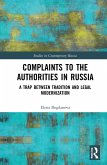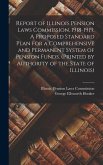If state authority is passed to firms, this does not mean that states lose and non-actors gain authority. Rather, the authors argue, this signifies a new way of sustaining capitalist accumulation in an era of global structural change. What appears at first sight to be a competition for authority turns out to be a strategy, under new conditions, for continuing the same system of economic production. The chapters in this book explore the nature of the relationships between state and non-state actors in an evolving global economic order. Daniel Egan, Ann M. Florini, Glibert Gagne, Virginia Haufler, Susanne Feitelberg Jakobsen, David L. Levy, Jochen Lorentzen, Duncan Matthews, John F. Pickering, Brian Portnoy, Jan Aart Scholte, Susan K
Traditionally in International Relations, power and authority were considered to rest with states. But recently, in the light of changes associated with globalisation, this has come under scrutiny both empirically and theoretically. This book analyses the continuing but changing role of states in the international arena, and their relationships with a wide range of non-state actors, which possess increasingly salient capabilities to structure global politics and economics.
Hinweis: Dieser Artikel kann nur an eine deutsche Lieferadresse ausgeliefert werden.
Traditionally in International Relations, power and authority were considered to rest with states. But recently, in the light of changes associated with globalisation, this has come under scrutiny both empirically and theoretically. This book analyses the continuing but changing role of states in the international arena, and their relationships with a wide range of non-state actors, which possess increasingly salient capabilities to structure global politics and economics.
Hinweis: Dieser Artikel kann nur an eine deutsche Lieferadresse ausgeliefert werden.








